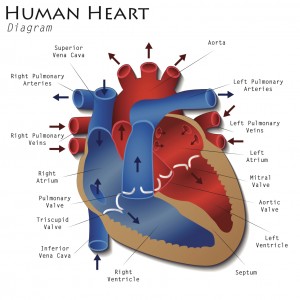
According to recent survey, 425,000 women suffer from stroke each year. Most women are unaware of the risk factors and symptoms of stroke, so it is important to talk to your doctor about any future complications you may have in order to take preventative measures. After all, a healthy lifestyle will ensure longevity, and who doesn’t want a long healthy life? Unfortunately, you may be at risk for a stroke and you may not be able to control that. How do you know if you’re at risk? Here are some of the risk factors involved with a stroke:
- High blood pressure
- Family history
- Smoking
- Diabetes
- High cholesterol
- Lack of exercise
- Being overweight
Did you find one that matched with you? Don’t worry – there are things you can do to keep that stroke at bay. To reduce your risk of stroke, you will need to make some lifestyle changes, such as quitting smoking. Exercising and eating a healthier diet can help you lose weight and reduce your chances of diabetes and high cholesterol. These are just a few things we should be doing to maintain a long healthy life, so these changes are going to be good overall, not just at preventing a stroke.
If you want to start reducing your risk for stroke, contact Dr. Gordon Gunn and ask about the Heart Disease and Stroke Prevention Program. By participating in the Heart Disease and Stroke Prevention Program you will gain an understanding of your risk, increase your awareness for heart disease, and be empowered with healthy solutions.
If you would like more information on stroke prevention, contact Dr. Gordon C. Gunn MD at 714-912-2211 or visit www.gordongunnmd.com to schedule an appointment today.
Dr. Gordon Gunn proudly serves Fullerton and all surrounding areas.


 It is a scary thought to know you are at risk for a heart attack or stroke. Unfortunately, it is a truth we all need to accept. Every year, millions of Americans suffer from a heart attack, and nearly half of those heart attacks are fatal. Strokes are the leading cause of disability and the third leading cause of death in men and women. It’s time to take control and get heart healthy. In honor of
It is a scary thought to know you are at risk for a heart attack or stroke. Unfortunately, it is a truth we all need to accept. Every year, millions of Americans suffer from a heart attack, and nearly half of those heart attacks are fatal. Strokes are the leading cause of disability and the third leading cause of death in men and women. It’s time to take control and get heart healthy. In honor of 
 Cardiovascular disease, which includes coronary artery heart disease, stroke and peripheral arterial disease (PAD), is the leading cause of death of both American women and men. Statistics show that women and men have different outcomes from this disease. Women are more likely than men to die from a heart attack or stroke than men. However, the misconception still exists that cardiovascular disease is not a real problem for women.
Cardiovascular disease, which includes coronary artery heart disease, stroke and peripheral arterial disease (PAD), is the leading cause of death of both American women and men. Statistics show that women and men have different outcomes from this disease. Women are more likely than men to die from a heart attack or stroke than men. However, the misconception still exists that cardiovascular disease is not a real problem for women. According to recent survey, 425,000 women suffer from stroke each year. The problem is, most women are unaware of the risk factors and
According to recent survey, 425,000 women suffer from stroke each year. The problem is, most women are unaware of the risk factors and  The history of hormone replacement in women has seen many swings in popularity over the past few decades. In 1991, the National Institutes of Health (N.I.H.) launched the Women’s Health Initiative (WHI), designed to test the effects of hormone therapy on heart disease, bone fractures, breast cancer and colon cancer. One group of women who had undergone a hysterectomy received oral estrogen (Premarin) alone [estrogen replacement therapy or ERT]. A second group received a combination of Premarin and progesterone (PremPro) [combination hormone replacement therapy or HRT]. A third group received a placebo, which contained no hormone. In 2002, the study was stopped because the Provera group was associated with a slight increase in the incidence of
The history of hormone replacement in women has seen many swings in popularity over the past few decades. In 1991, the National Institutes of Health (N.I.H.) launched the Women’s Health Initiative (WHI), designed to test the effects of hormone therapy on heart disease, bone fractures, breast cancer and colon cancer. One group of women who had undergone a hysterectomy received oral estrogen (Premarin) alone [estrogen replacement therapy or ERT]. A second group received a combination of Premarin and progesterone (PremPro) [combination hormone replacement therapy or HRT]. A third group received a placebo, which contained no hormone. In 2002, the study was stopped because the Provera group was associated with a slight increase in the incidence of 
